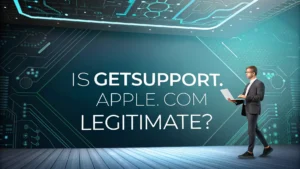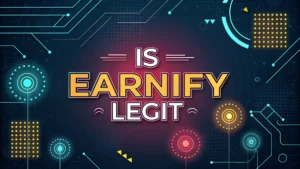Are you wondering if Fortnite refunds are actually legitimate? With millions of players and billions of dollars in transactions, Epic Games’ popular battle royale has become a hotbed for both genuine refund opportunities and sophisticated scams.
The recent Federal Trade Commission settlement has created confusion about what’s real and what’s not. Many players find themselves asking whether they can trust refund offers or if they’re walking into a trap.
This comprehensive guide will help you understand the difference between legitimate Fortnite refunds and dangerous scams. You’ll discover how to protect yourself from fraudulent schemes while learning about real opportunities to recover money from unwanted purchases.
Key Takeaways
- The FTC settlement is completely legitimate and has resulted in over $126 million in refunds to eligible players who were charged for unwanted items between January 2017 and September 2022
- Only official channels are safe including www.ftc.gov/fortnite and Epic Games’ official refund policy through their customer support system
- Third party refund services are scams that attempt to steal your account information, money, or personal data through fake promises
- Epic Games offers limited official refunds with a maximum of three return tickets per account for eligible purchases within 14 days
- Scam warning signs include payment requests as legitimate refund processes never require you to pay money upfront to receive your refund
Understanding the Official FTC Fortnite Settlement
The Federal Trade Commission settlement represents the largest gaming refund program in history. Epic Games agreed to pay $245 million to settle allegations that the company used deceptive practices to trick players into making unwanted purchases. This settlement covers specific time periods and circumstances, making it crucial to understand your eligibility.
The settlement addresses several key issues that affected millions of players. Epic Games was accused of making it too easy for players to accidentally purchase items while navigating menus or trying to preview content. Children often made purchases without parental knowledge or consent. The company also allegedly made it difficult for players to cancel or refund unwanted purchases once they occurred.
Eligible players include those who were charged for unwanted items between January 2017 and September 2022. This covers both accidental purchases and situations where children made purchases without parental permission. The average refund amount is approximately $114, though individual amounts vary based on specific circumstances and purchase history.
The claims process requires specific information including your Epic Account ID or a claim number provided by the FTC. Players have until July 9, 2025, to submit their claims through the official website. The FTC has already distributed over $126 million to eligible players, with additional rounds of payments being processed for valid claims.
Epic Games Official Refund Policy Explained
Epic Games maintains its own refund policy separate from the FTC settlement. This policy applies to current and future purchases made through the Epic Games Store. Players can request refunds for eligible purchases within 14 days of purchase or 14 days after the game’s release date for pre-purchases.
The company allows a maximum of three return tickets per account, which means you can only request three refunds throughout your account’s lifetime. This limitation makes it important to be selective about which purchases you choose to refund. The policy covers games and other products marked as “refundable” or “self-refundable” in the store.
To request an official refund, players must contact Epic Games Player Support through their official website. The process requires providing order information and explaining the reason for the refund request. Refunds are typically processed within several business days once approved.
Certain purchases are not eligible for refunds under the official policy. Items purchased on console or mobile platforms must be refunded through those respective store policies. In-game purchases made with V-Bucks often have different refund rules and may require special circumstances to qualify for refunds.
How to Identify Legitimate Fortnite Refund Opportunities
Legitimate Fortnite refunds come from only two official sources. The FTC settlement process operates through www.ftc.gov/fortnite and related official government websites. Epic Games’ own refund system works through their official player support channels. Any other source claiming to offer Fortnite refunds should be treated with extreme caution.
Official refund communications will never ask you to pay money upfront or provide sensitive financial information beyond what’s necessary for processing. The FTC specifically warns that legitimate refund processes never require payment to file a claim. Official emails will come from verified Epic Games or government domains.
Legitimate processes provide clear documentation and tracking systems for your refund claims. The FTC provides claim numbers and specific timelines for processing. Epic Games provides order numbers and case tracking through their support system. Both systems offer official customer service channels for questions and updates.
Timing is crucial for legitimate refunds. The FTC settlement has specific deadlines that will not be extended beyond July 9, 2025. Epic Games’ official policy requires refund requests within 14 days of purchase. Legitimate opportunities have clear, publicly announced deadlines that are consistently communicated.
Common Fortnite Refund Scams and Red Flags
Third party refund services represent the most dangerous category of Fortnite scams. These services claim they can recover money from Epic Games on your behalf, often promising larger refunds or guaranteed results. They typically require your Epic Games login information, which gives scammers complete access to your account.
Fake websites designed to look like official Epic Games or FTC pages are increasingly sophisticated. Scammers create URLs that closely resemble legitimate sites but contain subtle differences. These sites collect login credentials and personal information that can be used for identity theft or account takeovers.
Email and text message scams claim to offer instant refunds in exchange for clicking links or providing information. The FTC specifically warns against these communications, noting that legitimate refund processes don’t operate through unsolicited messages. These scams often create artificial urgency to pressure victims into quick decisions.
Social media scams use fake influencer accounts or impersonation to promote bogus refund services. Scammers create accounts that appear to be from legitimate gaming personalities or Epic Games employees. They offer exclusive refund opportunities that require immediate action or payment to secure.
The Dangers of Third Party Refund Services
Third party refund services pose significant risks to both your account security and financial safety. These services often require your Epic Games login credentials, which gives them complete access to your account. Once they have this access, they can steal your V-Bucks, skins, and other valuable items.
Many third party services use chargeback fraud to attempt refunds on your behalf. This process involves disputing legitimate charges with your bank or credit card company. While this might initially result in returned money, it often leads to permanent account bans from Epic Games and potential legal consequences.
These services frequently charge substantial fees for their “services,” often taking 30-50% of any recovered funds. Since they cannot actually provide legitimate refunds through official channels, they often disappear with both your fee payment and account information. Many victims lose money twice through these scams.
Account theft is a common outcome when dealing with third party refund services. Scammers sell stolen account information on dark web marketplaces or use accounts for their own purposes. Recovery of stolen accounts can be extremely difficult and time-consuming, often requiring extensive documentation to prove ownership.
Protecting Your Account from Refund Scams
Two-factor authentication provides the most effective protection against account compromise. Enable 2FA through Epic Games’ official account settings using your phone number or authentication app. This prevents scammers from accessing your account even if they obtain your password through phishing or other methods.
Never share your Epic Games login credentials with any third party service or individual. Legitimate refund processes never require your account password or login information. Epic Games employees and FTC representatives will never ask for these details through unofficial channels.
Use unique, strong passwords for your Epic Games account that differ from passwords on other platforms. Change your password immediately if you suspect it may have been compromised. Consider using a password manager to generate and store complex passwords securely.
Monitor your account regularly for unauthorized purchases or changes. Check your V-Bucks balance, recent purchases, and account settings frequently. Set up email notifications for account changes and purchase confirmations to detect suspicious activity quickly.
Steps to Take if You’ve Been Scammed
Contact Epic Games immediately if you believe your account has been compromised through a refund scam. Use their official support channels to report the incident and request account recovery assistance. Provide as much detail as possible about what happened and what information was shared.
Change your password and enable two-factor authentication as soon as you suspect account compromise. Even if scammers have already accessed your account, these steps can prevent further unauthorized access. Use a completely new password that hasn’t been used on any other platforms.
Report the scam to appropriate authorities including the Federal Trade Commission at ReportFraud.ftc.gov. File complaints with your local consumer protection agency and the Internet Crime Complaint Center. These reports help authorities track scam operations and protect other potential victims.
Contact your bank or credit card company if you provided financial information to scammers or paid fees to fraudulent services. They can help monitor your accounts for unauthorized transactions and potentially reverse fraudulent charges. Consider freezing your credit if identity theft is suspected.
Understanding V-Bucks and Refund Limitations
V-Bucks purchases follow different refund rules than other Epic Games Store purchases. Once V-Bucks are purchased and used to buy in-game items, they typically cannot be refunded through normal channels. The FTC settlement specifically addresses situations where players were charged for unwanted V-Bucks or items.
Console and mobile purchases require platform-specific refund processes. Items purchased through PlayStation, Xbox, Nintendo, Apple, or Google stores must be refunded through those respective platforms. Epic Games cannot process refunds for purchases made through other companies’ payment systems.
The three-ticket limitation applies to your entire Epic Games account history. This means you should carefully consider which purchases truly warrant refund requests. Using all three tickets on minor purchases could prevent you from getting refunds on more significant problems later.
Timing restrictions are strictly enforced for Epic Games’ official refund policy. The 14-day window begins from the purchase date or release date, whichever is later for pre-purchases. Extensions are rarely granted, even for technical issues or other circumstances beyond player control.
Future of Fortnite Refunds and Consumer Protection
Regulatory scrutiny of gaming purchases is increasing following the Epic Games settlement. Other major gaming companies are facing similar investigations and potential enforcement actions. This trend suggests stronger consumer protections and clearer refund policies may become standard across the industry.
Epic Games has implemented improved purchase confirmation systems as part of their settlement agreement. These changes are designed to prevent accidental purchases and make refund processes more transparent. Players should expect continued improvements to purchase interfaces and confirmation mechanisms.
Education about gaming scams is becoming more important as scammers develop more sophisticated techniques. Parents, players, and consumer protection agencies are working together to raise awareness about common scams and prevention strategies. This collaborative approach helps create safer gaming environments.
Technology solutions are being developed to help prevent gaming fraud and improve refund processes. These include better authentication systems, improved purchase confirmation methods, and automated fraud detection. The gaming industry is investing heavily in these protective technologies.
Frequently Asked Questions About Fortnite Refunds
Is the FTC Fortnite refund real?
Yes, the FTC settlement is completely legitimate and has distributed over $126 million to eligible players.
How much money can I get from the Fortnite refund?
The average refund is approximately $114, but individual amounts vary based on your specific purchase history.
When is the deadline for FTC Fortnite claims?
All claims must be submitted by July 9, 2025, through the official FTC website.
Can I get unlimited refunds from Epic Games?
No, Epic Games limits players to three return tickets per account for their official refund policy.
Are third party refund services safe?
No, all third party refund services are scams that attempt to steal your account information and money.
What should I do if I think I’ve been scammed?
Contact Epic Games support immediately, change your password, enable two-factor authentication, and report the scam to authorities.





















